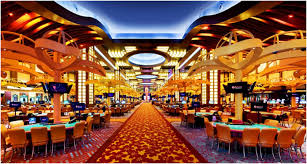One of the major arguments for the US to open up regulations and legalise online casinos is that currently US states are missing out on taxes spent by their users at offshore operators, and the funds raised could fill the ever present social security black holes.
The economic impact of physical casinos lends support these claims, but there remains a question as to whether their online counterparts can offer the same benefits, and if they can be sufficiently regulated to protect children and vulnerable people – a problem at casinos easily solved by doormen asking for IDs.
New Jersey was one of the first states to legalise online gambling, and at the time then-governor Chris Christie predicted that internet casino gambling would generate $160 million in its first year. However, the industry warned that he was being overly optimistic and the actual results were nearly 45% below Christie’s expectations.
As online casino and NZ sports betting sites rose to prominence, the idea was that operators may favour internet gambling as it offers them a greater opportunity for profits without the staff costs and need to compete with the likes of Las Vegas on wider entertainment. Indeed, Donald Trump’s spectacular failure in Atlantic City demonstrates the oversaturation of casinos in the Northeast of the country and the ultra-competitive nature of the industry.
However, Boyd Gaming chief Keith Smith says that a combination of both offline and online initiatives could prove the most lucrative, with each market attracting different customers. He argues that “online gaming is growing our database” and 85% of those playing online are not those previously registered at the firms casinos, which shows that “there is little overlap with our land-based business”.
Despite the tax-raising possibilities of internet gambling, many people remain opposed to the legalisation and opening up of the sector due to the social costs of gambling. Part of the reason that the US currently prohibits Class III gambling (generally the type of games that people associate with gambling like roulette, poker, blackjack, electronic slot machines and other forms of online betting), is the possible harmful effects on vulnerable people. However, campaigners argue that only legalisation offers a way to properly regulate the internet gambling industry, and create the safeguards that they agree are needed.
However, campaigners argue that only legalisation offers a way to properly regulate the internet gambling industry, and create the safeguards that they agree are needed. They claim that by prohibiting US-based firms from offering such forms of gambling, regulators are indirectly creating a gambling “Wild West” outside the country’s borders, where operators face little regulation and users offered varying protections depending on the location of the firm.








